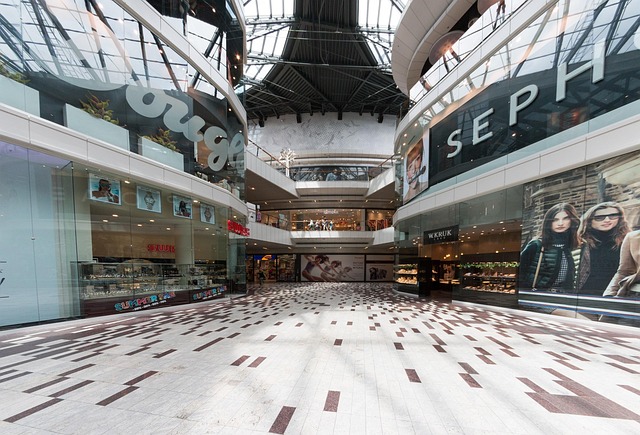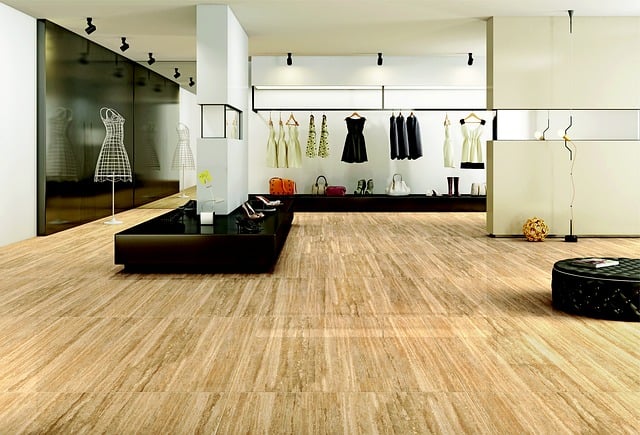When choosing flooring for a Denver flooring store project, initial costs and long-term maintenance are key. Hardwood floors offer classic aesthetics but higher upfront expenses; carpets are cheaper but require frequent cleaning and replacements. Luxury vinyl plank and epoxy resin mimic hardwood's look while providing better value, durability, and low maintenance. Hardwood floors have better resale value than carpets, and eco-friendly options like bamboo and sustainable vinyl flooring are available in Denver flooring stores. Proper care can extend the life of both types, enhancing property value.
When it comes to transforming your space, choosing between carpet and hardwood flooring is a significant decision. At a local flooring store in Denver, we break down the costs to help you budget effectively. This comprehensive guide compares initial installation expenses, long-term maintenance, material costs, resale value, and environmental impact. Whether you’re prioritizing comfort or durability, our analysis will equip you with the insights to make an informed choice for your home or business.
- Initial Installation Costs: Carpet vs Hardwood
- Long-Term Maintenance Expenses Comparison
- Material and Labor Prices Breakdown
- Resale Value Impact: Flooring Considerations
- Environmental Sustainability: Eco-Friendly Choices
Initial Installation Costs: Carpet vs Hardwood

When considering carpet versus hardwood for your Denver flooring store needs, initial installation costs are a significant factor to evaluate. Generally, hardwood floors tend to have higher upfront expenses due to material and labor costs. The complexity of installation, especially in older homes, can add to the overall price tag. On the other hand, carpets offer a more budget-friendly option for new construction or renovation projects. Many flooring stores in Denver provide competitive pricing on carpets, making them an attractive choice for those seeking affordable, comfortable, and warm floor coverings.
In contrast, luxury vinyl plank flooring and epoxy resin flooring Denver options are durable flooring solutions that mimic the appearance of hardwood while often being more cost-effective during installation. These modern alternatives have gained popularity due to their versatility, water resistance, and low maintenance requirements, making them suitable for various interior spaces.
Long-Term Maintenance Expenses Comparison

When comparing carpet to hardwood flooring in terms of long-term maintenance expenses, it’s essential to consider ongoing costs beyond initial installation. Carpets require regular cleaning and eventual replacement, which can accumulate significant costs over time. This includes deep cleaning services, spot treatments, and the cost of new carpeting as styles and trends change. On the other hand, hardwood floors necessitate periodic refinishing and minor repairs, usually less expensive than carpet replacements. While a flooring store in Denver might offer attractive pricing for carpet installation, the overall cost of ownership can be higher due to repeated purchases over decades.
For those seeking long-term savings, a Denver flooring contractor might recommend hardwood as a more sustainable investment. In home flooring services often provide better value for money since hardwood floors can last several decades with proper care. Unlike carpets that harbor dust, allergens, and stains, hardwood offers easier maintenance through regular sweeping and occasional professional polishing like Denver concrete polishing services. This minimal upkeep contributes to lower long-term expenses compared to the frequent maintenance requirements of carpeted spaces.
Material and Labor Prices Breakdown

When comparing carpet to hardwood flooring in Denver, a crucial factor is the material and labor costs involved. In terms of commercial carpet installation, the upfront prices for materials can be significantly lower compared to high-end laminate wood look options. Carpets offer a wide range of affordable choices, from synthetic blends to natural fibers, catering to various budgets. However, professional installation often contributes to higher overall expenses, especially for intricate designs or specialized techniques.
On the other hand, hardwood floors, including epoxy floor coating services provided by contractors, might have a higher initial investment but can last longer with proper care. While labor costs for hardwood installation can be substantial, particularly for intricate layouts, the longevity of the flooring often makes it a worthwhile choice in the long run. Compare quotes from local flooring stores Denver to gauge the precise material and labor prices tailored to your project’s scope.
Resale Value Impact: Flooring Considerations

When considering resale value, hardwood floors often hold their value better than carpets. This is because hardwood is seen as a more luxurious and permanent fixture in a home, appealing to a wide range of buyers. In contrast, carpets can show signs of wear and tear faster, which might deter potential purchasers. A flooring store in Denver offering services like denver bamboo flooring knows that the market tends to favor hardwood for its longevity and aesthetic appeal.
Moreover, proper care and maintenance can extend the life of both carpeting and hardwood floors. Regular vacuuming, deep cleaning, and spot treatment by a professional flooring company Denver residents trust, such as those offering carpet cleaning and repair services, can make a significant difference. For instance, denver bamboo flooring, known for its durability and eco-friendliness, can withstand heavy foot traffic and regular cleaning, potentially increasing the property’s value over time.
Environmental Sustainability: Eco-Friendly Choices

When considering flooring options, environmental sustainability is a crucial factor for many homeowners today. In terms of both carpet and hardwood, there are eco-friendly choices to be made that can impact the planet positively. For instance, vinyl flooring installation in Denver has gained popularity as an alternative to traditional materials due to its low-maintenance nature and ability to be recycled at the end of its life cycle. This makes it a more sustainable option compared to carpets, which often require frequent replacement.
In contrast, hardwood floors offer a timeless aesthetic appeal but may have a higher environmental impact during manufacturing and transportation. However, many Denver flooring stores now emphasize the importance of locally sourced materials and efficient production methods, ensuring that customers can make informed choices while contributing to a greener future. Additionally, proper cushioning underlayment for floors can enhance both comfort and energy efficiency in homes, further supporting eco-friendly living without compromising on style or durability.
When comparing carpet to hardwood flooring in Denver, the decision extends beyond aesthetics. While initial installation costs for carpet may be lower, hardwood floors offer long-term savings with reduced maintenance expenses and higher resale value. For an eco-friendly option, consider sustainable hardwood from reputable Denver flooring stores. Ultimately, the choice depends on your budget, lifestyle, and environmental priorities.
